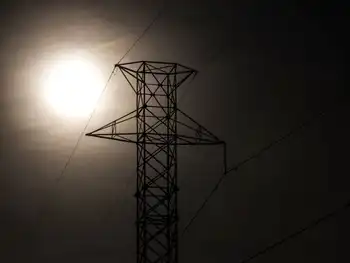Oldest reactor alarms watchdog: Agency issues harsh criticism of research facility
OTTAWA, ONTARIO - The country's oldest nuclear reactor is being run by people prone to "overconfidence," "complacency" and "deficiencies in management oversight and safety culture," says the federal nuclear safety watchdog.
In a report prepared for an upcoming meeting, the Canadian Nuclear Safety Commission says these problems have been turning up repeatedly at NRU, a federal research reactor nearly 50 years old that uses enriched uranium fuel.
Atomic Energy of Canada Ltd. (AECL), a federal Crown corporation, operates the National Research Universal (NRU) reactor. AECL is asking the nuclear safety commission to approve keeping NRU in service indefinitely, although it was supposed to shut down permanently at the end of this year.
The repeated problems at NRU "erode confidence in the licensee's qualification to safely manage the work," the regulatory agency concludes in one of its harshest criticisms ever of a reactor operator.
Commission officials declined further comment on the report, which was distributed by email recently.
An AECL spokesman said the reactor is being operated safely and the commission's concerns are being dealt with.
"These are strong words. There are no punches pulled here," acknowledged Glenn Artchinoff, AECL's chief regulatory officer.
The NRU reactor is the world's leading source of medical isotopes used in the diagnosis and treatment of cancer. More than five million patients annually are treated with isotopes from the reactor, operated since 1957 in AECL's sprawling nuclear complex at Chalk River on the Ottawa River.
NRU is also celebrated as the test bed for developing the CANDU power reactors used extensively in Ontario and as the facility that led to a Canadian researcher sharing a Nobel physics prize.
But commission officials are worried that AECL no longer has enough qualified and experienced staff to operate NRU properly. They have told the Crown corporation to have an "independent" expert examine staffing levels versus workload.
The regulatory agency also complains that AECL is taking a long time to fix NRU operating problems. More than half the "corrective actions" are overdue and some stretch out more than a year after the mishap that prompted the agency's original probe.
During a routine refuelling at the NRU last October, operators failed to provide cooling for a radioactive fuel rod for almost two minutes. The reactor uses fuel containing 20 per cent enriched uranium, while the natural uranium fuel in CANDU power reactors has no enriched component.
If the heat of radioactive decay in used enriched fuel is not cooled by using water or other methods, the bundles can rupture and spread radioactive debris. Extreme cooling failures could trigger a nuclear meltdown.
Although the particular fuel rod suffered no harm in the mishap, the commission noted that a longer cooling lapse could have produced damage.
Artchinoff said AECL's internal inquest into the incident itemized the same failings that the federal regulator highlighted in last week's report. In addition to overconfidence, complacency and poor safety culture, AECL also singled out an emphasis on expediting work instead of following procedures and misplaced reliance on the judgment of individuals.
"We're confident that the facility is being operated safely but we have to take actions to give CNSC staff the confidence that they're looking for," he said.
Artchinoff said AECL has spent $40 million since 1996 upgrading NRU, including a new emergency cooling system, a backup electrical system and earthquake resistance. He said he did not think the age of the reactor was a significant factor in the CNSC concerns.
The safety problems are scheduled to be aired June 29 at a CNSC public meeting. The agency's commissioners will also hold a separate hearing the same day concerning AECL's bid to keep operating the country's oldest reactor.
Related News

Ontario takes constitutional challenge of its global adjustment electricity fee to Supreme Court
TORONTO - The Ontario government wants the Supreme Court of Canada to weigh in on a constitutional challenge being brought against a large provincial electricity charge, a case the province claims raises issues of national importance.
Ontario’s attorney general and its Independent Electricity System Operator applied for permission to appeal to the Supreme Court in January, according to the court’s website.
The province is trying to appeal a Court of Appeal for Ontario decision from November that said a legal challenge by Hamilton, Ont.-based National Steel Car Ltd. should be sent back to a lower-court for a full hearing.
Court reinstates constitutional challenge…




